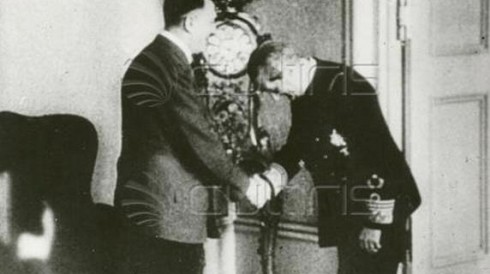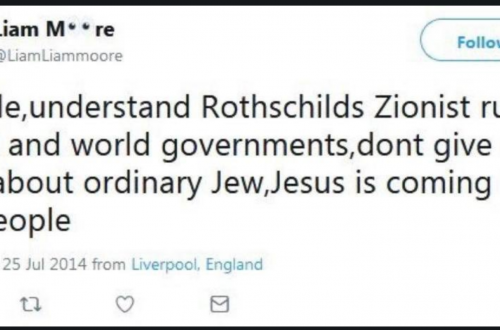Cross-posted from Eva S. Balogh at Hungarian Spectrum
Yesterday I wrote about the Orbán government’s bizarre plan to erect a statue to commemorate the occupation of Hungary by the German army. Since then a flash mob was organized on Szabadság tér where the memorial will be placed and several more people expressed their misgivings about the very idea.
Magyar Nemzet was content to republish the official explanation, according to which the monument will pay homage to the spirit of the new constitution’s preamble which points to Hungary’s loss of sovereignty on March 19, 1944. It seems, however, that even this pro-government paper found the explanation meaningless and hence came up with an imaginative headline: “The government honors every Hungarian victim.” That is, if we are to believe Magyar Nemzet, this monument is a gesture to the victims of the Holocaust.
Magyar Hírlap, a paper to the right of Magyar Nemzet, ran a fairly lengthy op/ed piece by Péter Szentmihályi Szabó, a poet and writer of far-right political views. He, as opposed to historians specializing in the period, is certain that “the German occupation eliminated even the appearance of Hungarian independence, made it impossible to sign a separate peace and made the territory of the country a battleground.” According to Szentmihályi Szabó, placing the new memorial on the same square as the monument to the Soviet liberation of Hungary is an excellent idea because it emphasizes the geopolitical impossibility of a good decision on the part of the Hungarian government.
Even without a detailed knowledge of German-Hungarian relations during the 1930s and 1940s it is obvious that Szentmihályi Szabó doesn’t know what he is talking about. We can’t really speak of “occupation” in the classical meaning of the word because, after all, sending German troops to Hungary came about with Miklós Horthy’s consent. No notes were taken of the conversation between Hitler and Horthy in Klessheim, but it can be reconstructed fairly well. Horthy wasn’t threatened as one recent article claimed. And the main topic wasn’t the deportation of Hungary’s Jewry, although Hitler demanded 50,000 men to work in Germany, which Horthy agreed to. As for making a separate peace with the Russians, Szentmihályi should know that this idea was abhorrent to Horthy, who was a fierce anti-communist. He didn’t entertain the idea until the Soviets were on Hungarian soil. As for the German occupation being the reason that Hungary became a battleground, this is also a patent misinterpretation of history. As the Soviet Union moved westward it engaged the remaining members of the Axis powers, which included the Hungarian army.
 Hitler and Horthy
Hitler and HorthyHorthy instructed the Hungarian military and public officials to cooperate with the German forces. The Germans couldn’t complain about the Hungarian attitude. Or, if they had any complaint it was about the Hungarian eagerness to get rid of as many Hungarian Jews as possible. Auschwitz wasn’t prepared for the onslaught that Hungarian officials sent. They were ready for one transport of 3,000 a day, but the undersecretary of the Ministry of Interior which handled the deportation sent six transports a day. The Germans eventually managed to convince their Hungarian friends to send no more than four transports daily. And the old story that Horthy was so despondent and so discouraged that he completely withdrew from the affairs of state is also inaccurate. There are documents that attest to the fact that on April 13, 1944 he approved sending the 50,000 Jewish workers to Germany as he promised in Klessheim.
The op/ed piece that appeared in HVG yesterday (“Monument to the Hungarian Collaborators”) is pretty close to the truth. Adolf Eichmann’s staff, including even the drivers, was no larger than 60-80 men. They had to rely exclusively on Hungarian cooperation. In fact, Hungary was so well organized that the Germans themselves were surprised. Given the well-oiled machine, the consensus is that the deportation of Hungarian Jews had been worked out in detail ahead of time. The Germans in occupied countries let the local forces do the dirty work, and “solutions” varied from country to country. In Slovakia, Romania, Bulgaria, and France the local authorities chose paths that enabled most of their Jewish population to survive. If the Hungarian authorities had been less eager to get rid of their Jewish compatriots the result might have been very different. Just as in July when Horthy halted the deportation of Budapest’s Jewish population, he could have forbidden it in April with the possible exception of the 50,000 workers he promised to Hitler. Or, if the local authorities had sabotaged or slowed down the process, the number of victims could have been much smaller. But about 200,000 people were obediently working to fulfill the Hungarian plan. Krisztián Ungváry figured out that if the Hungarian authorities had stuck to the quota the Germans wanted (3,000 a day) 267,000 people would have survived the ordeal.
Historians studying the period find that the deportation was welcomed by the overwhelming majority of the Hungarian people. Yes, there were a few people who tried to save lives, but the majority approved the segregation and eventual removal of the Jewish population. In Veszprém the Catholic Church even organized a Te Deum mass to celebrate the deportation. There was wide consensus on the “Jewish question,” especially when it became clear that it was the Hungarian state that was the main beneficiary of the destruction of the Hungarian Jewry. Mind you, eventually some of the confiscated material was destroyed, lost, or stolen.
Hungarian historians have done an incredible amount of research on the subject in the last thirty-forty years, and I’m sure that thousands more articles and books will appear on seemingly every aspect of the question in the future. So, the problem is not a lack of knowledge. The trouble is that that information simply doesn’t penetrate the consciousness of the wider public, most likely because they don’t want to hear about all the horrors that took place in their country with Hungarian complicity. It is easier to say that the Hungarian government and the Hungarian people could do nothing to prevent the German atrocities.


